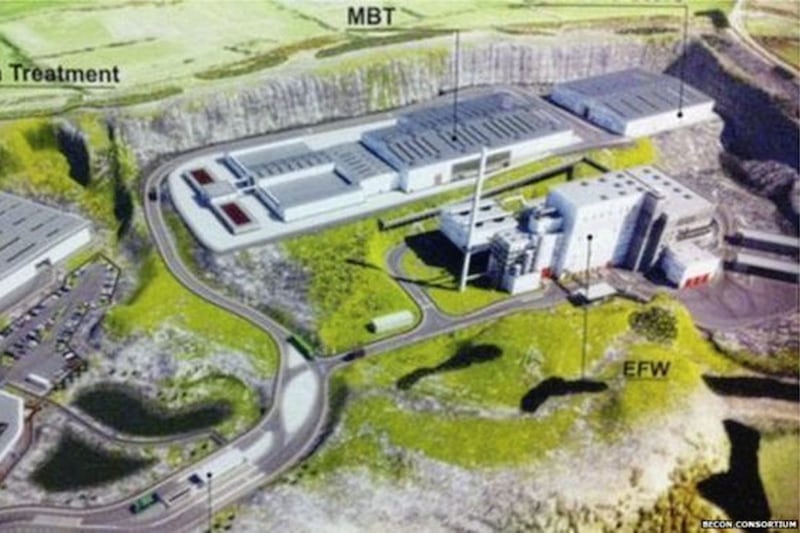DO you think much about where your black bin waste goes after your Council collects it? Should you? With the current climate emergency there has never been a more important time to view our waste as a valuable resource which should be treated locally and sustainably.
The recent Intergovernmental Panel on Climate Change (IPPC) report clearly outlined the scale of the challenge we all face – with the UN calling this ‘a code red for humanity’ moment.They also confirmed that methane emissions make a significant contribution to current global warming, even going as far to suggest that by reducing methane in the short to medium term we can buy the world extra time to tackle climate change.
The report also confirms that a major source of methane in our environment is from landfill waste. Research shows that over a 20-year period this potent greenhouse gas is around 84 times more powerful in global warming terms compared to carbon dioxide (Co2). Yet in Northern Ireland we continue to landfill large volumes of our household waste, burying over 240,000 tonnes of it last year.
If Northern Ireland is committed to playing its part in tackling climate change and in meeting agreed circular economy targets, we must stop sending our black bin waste to landfill. That’s why circular economy targets have placed a maximum 10 per cent cap on landfill by 2035 and why the UK Committee on Climate Change has proposed a total ban on biodegradable waste to landfill by 2025. We need a more sustainable solution for this waste, which continues to grow year on year.
Most people probably don’t realise that we also ship a lot of Northern Ireland waste abroad every year, over 235,000 tonnes last year alone, where most of it is used to fuel energy from waste plants there. This at a time when, we continue to import increasingly expensive fossil fuels to meet local energy needs. This approach is both economically and environmentally unsustainable. Self-sufficiency is increasingly important as markets for waste export are contracting or becoming prohibitively expensive as they prioritise local waste over imports, not to mention the carbon footprint shipping waste overseas creates.
The reason our waste is landfilled and exported is simple. It’s because there is insufficient waste treatment infrastructure here to manage it locally. A recent report by the UK’s leading waste experts, Tolvik Consulting, stated that by 2035, assuming we meet ambitious 65 per cent recycling targets, Northern Ireland will still produce over 500,000 tonnes of residual waste per annum. They confirm that even with the addition of the proposed arc21 integrated waste treatment facility on top of existing infrastructure that leaves a residual waste treatment capacity gap of over 124,000 tonnes by 2035.
The £240m becon project (becon.co.uk) is specifically designed to meet the needs of the six councils within the arc21 area and will divert the current ratepayer incurred costs for landfill and waste export to deliver a more sustainable solution with many local benefits.
It will firstly increase recycling levels by extracting valuable materials from our black bins and then generate valuable, safe and sustainable energy from the remaining non-recyclable material.
The facilities will enhance and diversify energy production by exporting 18MW of electricity to the National Grid, enough to power 30,000 homes with continuous base load electricity. It will deliver 50,000+ MWh per year towards renewable energy targets and reduce Co2 emissions by approximately 57,500 tonnes a year compared to sending waste to landfill.
It will help end the need to export our waste and create local jobs and inward investment in the process. The facilities have also been future proofed with the potential to enable a range of other valuable and innovative decarbonisation technologies such as hydrogen fuel production and district/industrial heating schemes, ensuring it delivers even more carbon reduction benefits locally.
The arc21 project has spent over seven years in the planning system in Northern Ireland and has been the subject of an independent Planning Appeals Commission process which recommended it for approval. With the pressing climate emergency, the time for a positive planning decision is now. So we have no time to waste.
Colin O’Hanlon is commercial manager at Indaver UK





